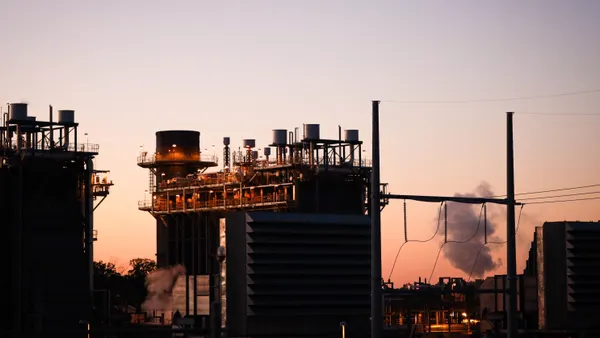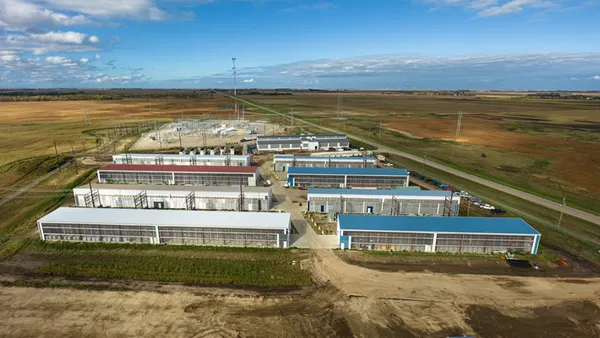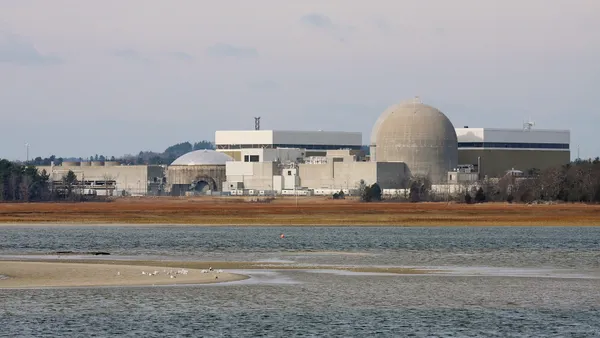UPDATE: Sept. 24, 2020: The House on Thursday passed the Clean Economy Jobs and Innovation Act, a companion bill to the Senate Energy Innovation Act.
Energy and Commerce Committee Chairman Frank Pallone, D-N.J. painted the legislative package as "practical and achievable clean energy policies that are possible for us to achieve this year," based on negotiations with the Senate. The renewable energy industry was critical of the bill's perceived shortcomings on direct aid to clean energy.
"[T]here is precious little in this legislation to accelerate the decarbonization of our electric grid today," Gregory Wetstone, president and CEO of the American Council on Renewable Energy, said in a statement. "What the renewable sector needs most right now is temporary refundability for renewable tax credits so that renewable energy projects can be completed in spite of a COVID-constrained tax equity market, and a delay in the scheduled phasedown of existing credits in recognition of the adverse nationwide impact the pandemic has had on renewable deployment this year."
Dive Brief:
-
The White House on Monday said the president's advisors would recommend he veto a comprehensive House clean energy bill, as progress on the Senate's Energy Innovation Act may continue to stall following the death of Supreme Court Justice Ruth Bader Ginsburg.
-
Members of Congress were hoping to squeeze out their respective chambers' energy innovation bills by the end of the year, but between the White House's intent to veto and an expected fierce battle over the now-vacant Supreme Court seat following the death of Ginsburg on Friday, a path forward is less certain. "With the news of Justice Ginsburg's passing, I cannot even venture a guess of how the next few weeks and months may play out," said Rep. Paul Tonko, D-N.Y., on Monday during a National Clean Energy Week symposium.
-
Policy observers say there was likely already too little time left in the year to see the Senate's Energy Innovation Act hit the floor again, after stalling in March. Meanwhile, the House’s legislative package was scheduled for a vote this week, but the White House Office of Management and Budget (OMB) indicated the president's advisors would recommend he veto the legislation if it made it to his desk, citing the bill’s "top-down approach that would undermine the Administration’s deregulatory agenda."
Dive Insight:
Power sector stakeholders have been waiting for movement on clean energy legislation since the Energy Innovation Act was first introduced by Senate Committee on Energy and Natural Resources (ENR) Chair Lisa Murkowski, R-Alaska, and Ranking Member Joe Manchin, D-W. Va., in February.
The legislation brought together almost 50 bills and would have invested in research and development for a wide array of clean energy technologies, including advanced nuclear, carbon capture and storage, and renewable energy. It stalled in March due to an "unrelated dispute," but Murkowski later indicated that she hoped to see it hit the floor again this year.
Following the death of Ginsburg Friday, Senate Majority Leader Mitch McConnell, R-Ky., made clear his intention of approving a new person to fill the seat before the end of the year. Two Republicans oppose the appointment so far, including Murkowski, but if a nominee is forwarded the already-tight window for floor time for the energy bill and other legislation will narrow considerably.
"In addition to being gross on a moral level, McConnell’s decision to fill the Supreme Court vacancy does scramble the calculus for most legislative efforts," said Ryan Fitzpatrick, director of the Climate and Energy Program at Third Way, in an email. "But it doesn’t change the fact that clean energy innovation supported by this bill offers near-term and long-term benefits that the economy needs a lot more of right now, or the fact that investing in energy RD&D is extremely popular with Americans across the political spectrum."
Meanwhile, the House has teed up its own bipartisan energy bill to hit the floor this week, but the White House has already indicated a presidential veto is likely, despite its inclusion of several Republican-backed bills.
In a statement, OMB said the bill would "interfere" with the United States' exit from the "reins" of the Paris Climate Accord and other international efforts to reduce carbon emissions. The White House was also critical of spending on workforce development training, calling the efforts "unnecessary," and said new regulations "would undo the Administration's significant progress in lowering emissions and cleaning our air and water."
"If H.R. 4447 were presented to the President, his advisors would recommend that he veto the bill," OMB wrote.
But HR 4447 would likely not emerge from any House-Senate conference in its current form, said Fitzpatrick, making the White House's move seem a bit preemptive.
"The House has a good bill that would strengthen the U.S.'s position in the global economy and the fight against climate change—but nobody believes this would be exactly the text that gets enacted," he said. "If the President wants to be constructive for a change, he could encourage the Senate to pass its own legislation and get started working out the details. Though I don't think that’s his goal."
Representatives and committees involved with the House package did not respond to requests for comment on the president's veto threat, but earlier on Monday, Rep. Tonko, who chairs the House Environment and Climate Change Subcommittee, expressed optimism about the bill.
Though the package "is not going to stop climate change," it represents positive changes that had received bipartisan, bicameral support, and "might make it easier to do a bigger, more ambitious bill in the near future," he said.
Despite the death of Ginsburg, "I would still like to see if reaching agreement on an energy package might be possible," said Tonko. "With that said, many of us are also looking forward, toward 2021."
A spokesperson for the Senate ENR said "It's too soon to say" whether Ginsburg's death and the subsequent dispute over her Supreme Court seat will have an impact on the Energy Innovation Act's advancement through the Senate.
"As we work to rebuild the economy, it is critical the American Energy Innovation Act is passed this year — given that the bipartisan energy innovation legislation contains workforce development provisions, incorporates the priorities of more than 70 Senators, and the nation's energy laws have not been updated in more than 12 years," the spokesperson said in an email.













